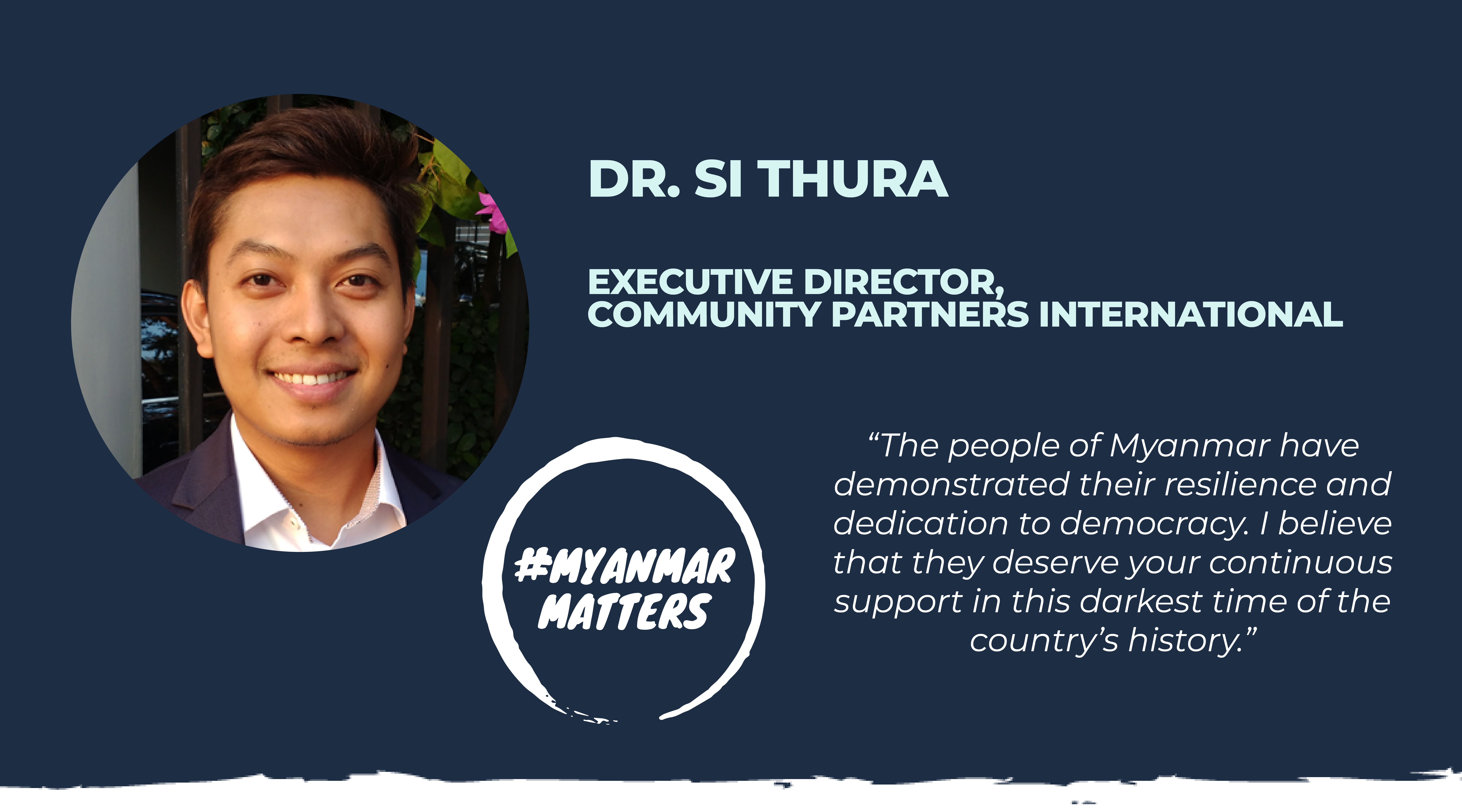Insights From an Unequal World: Striving Amidst the Pandemic and Political Turmoil in Myanmar
9 November 2021

As the coup in Myanmar continues to cripple the health system, we hear from Dr. Si Thura, Executive Director of Community Partners International, on the resilience of the people of Myanmar and how his organisation is supporting communities to build and deliver essential services.
This year has been the hardest in living memory for most of my friends, colleagues and family as our hopes for continuing the transition to democracy were crushed by the military coup in February, compounded by a devastating wave of COVID-19 in July.
It has been more than eight months since the Coup, and during this period we have seen widespread protest, conflict, violence, instability and brutal crackdowns, triggering a humanitarian crisis. As a citizen of Myanmar (Burma), it is horrendous to see the country falling apart, so much of the progress made in the last decade has been lost and we are sliding further into the abyss each day.
COVID-19 has brought even sophisticated health systems to their knees. For a country like Myanmar, especially at this time, it is an extremely disconcerting situation. Since June, we have seen a rapid surge in COVID-19 cases, and the public hospitals have been unable to accommodate the increasing numbers of patients. Families are desperately seeking oxygen and care for their loved ones; people are dying in their homes and crematoriums are overflowing. It is quite heartbreaking.
CPI’s Approach
At this appalling time, Community Partners International (CPI) has reached more than 900,000 people with COVID-19 prevention and care services, including telehealth home-based care, mobile medical care, technical support, medical supplies for clinics, oxygen supplies and nutritional support.
We are aware of the limitations, including security concerns, limited human resources and availability of medicines, but also of our strengths. We have an extensive network of partners, ranging from small community organizations to large international organizations, as well as agile operating systems and experience from the first and second waves of the pandemic.
We and our partners are no strangers to conflict or crisis. Our ability to operate in these contexts is hardwired into our core operating model. We believe in local partnership, and we support communities to build and deliver essential services. This model has proven itself much more resilient to shocks – our local partners, embedded in the communities they serve, never give up, regardless of the challenges that they face.
We have learned that our local partners are crucial to reaching people in need and that empowering local communities leads to huge gains in resilience that neither international organizations nor governments alone can provide.
The people of Myanmar have demonstrated their resilience and dedication to democracy. I believe that they deserve your continuous support in this darkest time of the country’s history.

A woman with COVID-19 receives treatment at a community clinic in Kayin State, Myanmar, supported by Community Partners International. (KDHW/CPI)
About CPI


0 Comments
Leave a comment
Your email address will not be published.